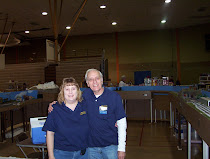The stories of the Orphan Train Riders
The following rider information was obtained from reunions talks, magazine articles, and newspaper articles. Occasionally, there is a personal letter from the rider or descendant. More detailed information is available in the six volumes produced by the Orphan Train National Organization. These biographic volumes were written by the riders, themselves, or by a descendant of the riders.
As the various riders tell their stories, several things become clear about their common experience:
1. They all thought that they rode the only orphan train. Very few realized that they were part of a major migration into the western parts of the United States. Nor were they aware that other countries were also moving their children.
2. Most of these riders thought that there was something wrong with them—their parents had given them away. In truth, there were many reasons that the children rode the Orphan Trains—parental deaths, inability to feed them, children born out of wedlock, neglect, abuse, etc. There was no one reason which applied to all of these children.
3. The children were instructed not to try to contact their birth parents. They were to break all ties to their past. To be an orphan carried a heavy stigma among their peers. An Orphan was different. They were not as good as anyone else. Many of the orphans, described in these stories, carried heavy emotional scars through out their lives. Many refused to tell their own families about their past.
There were many stories among the children. Many found good, loving homes. Others found that they were a cheap source of labor for the farmers and merchants. Some were treated with love while others found abusive homes. Some adored their new parents while others ran away never to be heard from again.
Not all of these children were adopted. Some were indentured [not the same thing]. Unless the child was legally adopted, or unless specified otherwise in a will, many of these children were not allowed to inherit.
Without birth certificates, many of these children had legal problems as they grew older. Birth certificates were required for marriage licenses, passports, identification papers, social security, driver’s licenses, etc. Orphans, which had fought for our country had trouble re-entering their own country after the war was over.
When one hears these stories, one wonders how anyone could be so heartless as to break-up so many families. Please remember, at that time, children were property. They had no rights. Because of the large influx of immigrants from Europe, jobs were scarce. Their extended families were not available. Child protection agencies and welfare did not exist. If relatives did not help these children, very few had anyone to turn to. For many, the Orphan Trains, not only saved their lives, but moved them to an environment where they stood a chance of making something out of their lives.
The Orphan Train movement was the first documented foster care system in America. From this mass movement of children, states soon developed their own child protection laws. Aid for dependent children, School lunches, Child labor laws, and many other programs gave the children rights and protection. These new laws, and public opinion, eventually made the Orphan Trains unnecessary. Officially, the last trains ran in 1929. There are several documented orphan train riders that came out unofficially in 1930.
This came from the website http://www.orphantrainriders.com/riders11.html
I was also doing some research on this topic and I found out that most trains originated from New York but ended up in different states. Here are some more websites with different destinations.
KANSAS: http://www.kancoll.org/articles/orphans/orphan_t.htm
MICHIGAN: http://www.program-source.com/orphan_train_project.htm
NEBRASKA: http://www.nebraskahistory.org/sites/mnh/orphans/
IOWA: http://iagenweb.org/iaorphans/
WISCONSIN: http://www.rootsweb.ancestry.com/~wiorphan/sitemap.html




0 comments:
Post a Comment